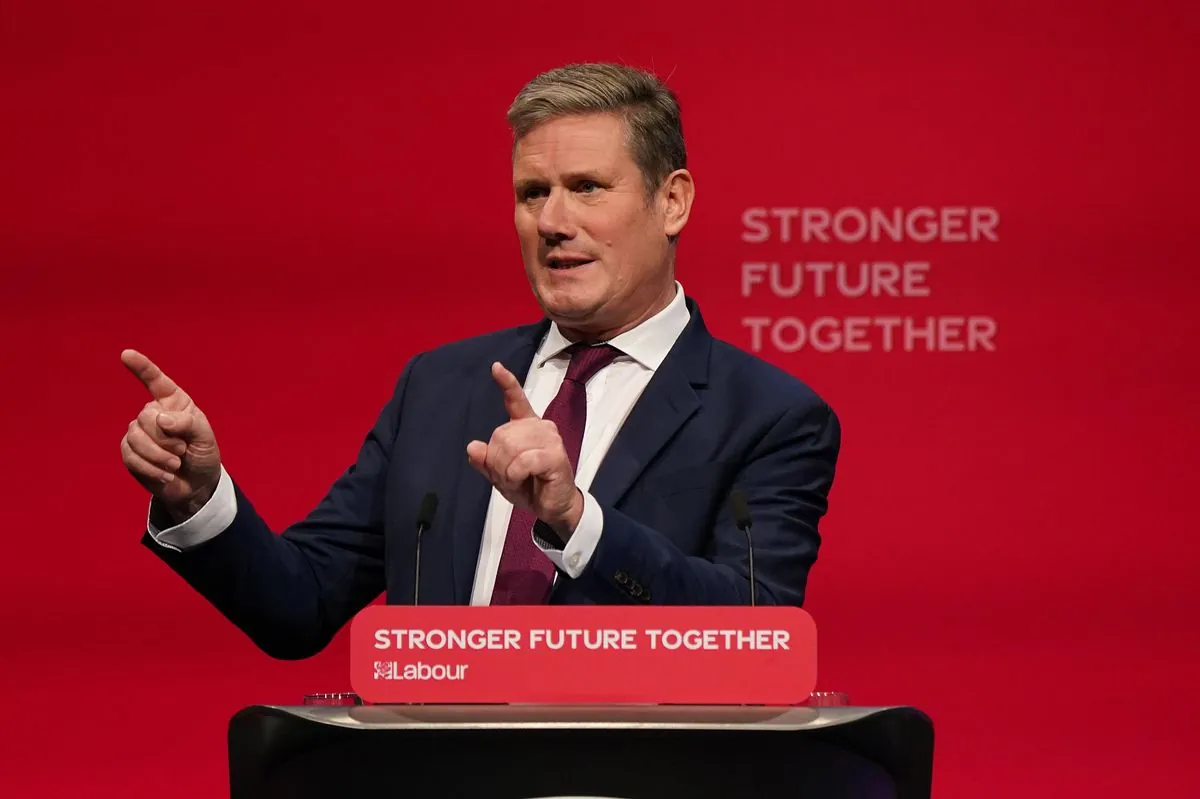UK Union Pushes Labour to Repeal Thatcher-Era Anti-Strike Laws
Fire Brigades Union urges Keir Starmer to abolish all anti-union legislation at upcoming TUC conference. Motion calls for repeal of laws banning flying pickets and closed shops, amid Labour's £30 million union funding since 2020.

The Fire Brigades Union (FBU) is set to challenge Sir Keir Starmer at the upcoming Trades Union Congress (TUC) by proposing a motion to repeal all anti-union laws, including those enacted during Margaret Thatcher's tenure. This move aims to pressure the Labour leader to expand his current commitment of abolishing only post-2010 anti-union legislation.
The FBU's motion, expected to pass, calls for the "repeal of all anti-union laws and for positive legal rights for trade unions." This would include the elimination of 1980s laws that prohibited flying pickets and closed shops, introduced secret ballots for industrial action, and limited collective bargaining.

Matt Wrack, FBU's general secretary and current TUC president, stated:
"The UK has the most restrictive and authoritarian anti-union laws in the western world. Robbing workers of the ability to stand up for themselves has driven down wages and made living standards and public services worse for the vast majority of people."
The union's stance reflects a broader historical context. The TUC, founded in 1868, has long advocated for workers' rights. The UK's union membership peaked in 1979 at 13.2 million members, coinciding with the start of Thatcher's premiership, which marked a significant shift in labor relations.
Labour's relationship with unions remains strong, with £2.4 million in donations during the election campaign and nearly £30 million since Starmer became leader in April 2020. This financial support underscores the importance of union backing for the party, which was founded in 1900 with strong ties to trade unions.
The FBU's motion also opposes the Minimum Service Levels (Strikes) Act of 2023, which mandates essential services during industrial action. This legislation has been criticized by the International Labour Organization (ILO) for potentially violating international labor standards.
In a related development, the Public and Commercial Services Union (PCS), representing nearly 200,000 public sector workers, has proposed a motion calling for "pay restoration in the public sector." This comes as the government recently settled disputes with junior doctors and train drivers, offering substantial pay increases.
The actors' union Equity, established in 1930, has put forward a separate motion advocating for the extension of workers' rights to migrants. This proposal addresses concerns about the current Skilled Worker Visa scheme, which replaced the Tier 2 (General) visa in December 2020.
Sir Jacob Rees-Mogg, former business secretary, criticized these union initiatives, stating, "This is what the union movement has always wanted: the march back to the 1970s. It would be no surprise if this weak government gave into them."
As the TUC conference approaches, the debate over union rights and labor laws continues to shape the UK's political landscape, with potential implications for the upcoming general election and future labor policies.


































